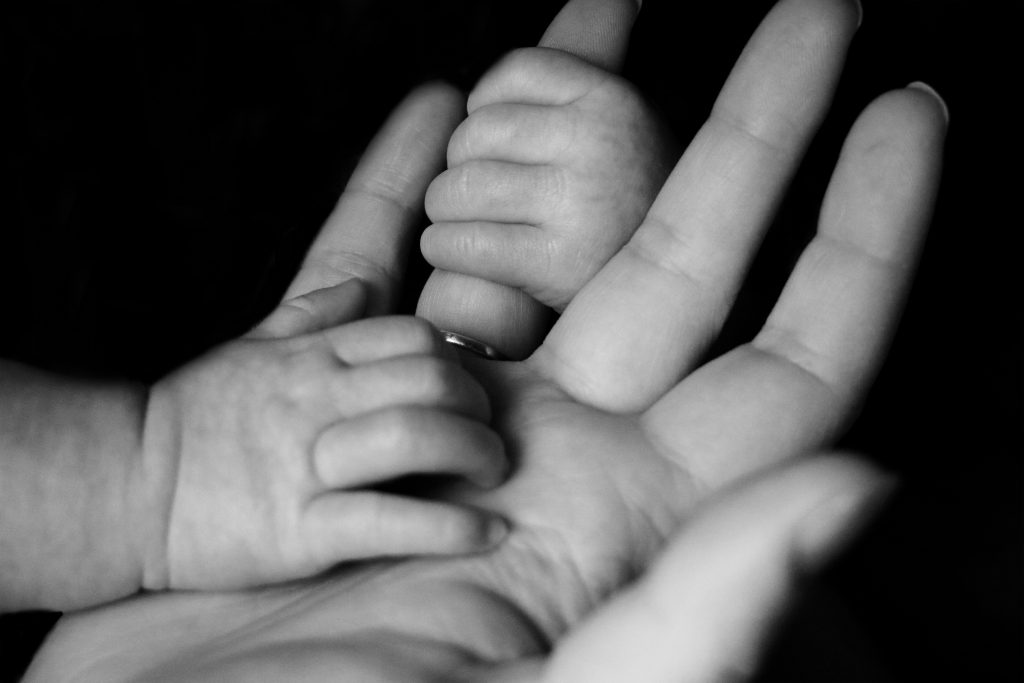
Having a baby somewhat throws a spanner in the works. However prepared you are. Even if you know everything. Or have a huge amount of experience. A new life complicates things. Primarily the ability to look after oneself adequately. I was aware that my daughter would change my life. And that my life would have to change with her. I knew that whatever I had to give up for parenthood would be worth it. Because she was infinitely more important and precious than anything else. I also knew that having a child is a massive life change and that I would need to be cognizant of my fluctuating postnatal mental health. Particularly in those early days where we found our feet as parent and baby. As I embraced the world of motherhood and forewent a huge amount of sleep.
And yet, despite the preparation and awareness. Navigating my postnatal mental health was far more of a challenge than I have reckoned it to be. I couldn’t imagine how tired I would be or how huge my emotions would feel. I wasn’t aware of how long recovery could take from childbirth. Despite ‘knowing’ about all of these things. I couldn’t have imagined what they would be like in practise. Knowing something logically is a far cry from experiencing it emotionally. And so, with my daughter in tow I learned to care for my postnatal mental health by a process of trial and error.
For Motherhood, Expectations and Mental Health read here.
#1 Trust Your Gut
This was perhaps the biggest life lesson for me as I became a parent. There is a huge amount of advice out there. Whether from well-meaning friends and family, health professionals, books and the internet. And there is of course wrong or misleading information. But after that there’s a lot of grey areas. There’s different parenting styles to choose from. And varying ways to do varying different baby-related tasks. And because every parent and baby combination is different. What works for one person or is the ‘must have’ baby secret that will change your life. Doesn’t mean it will work for you.
I could have saved myself a lot of heartache knowing this. I spent weeks trying to follow the advice of people who had children and told me I must do x. It didn’t work for me and my daughter. And if I’m being honest, I knew it wouldn’t. And yet, I tried to fit ourselves into that parenting technique anyway. Jeopardizing my postnatal mental health on the way. I’d have saved myself and my child a lot of tears if I’d had trusted my gut. And tried what I thought was best for us. Which as it turned out was exactly what we both needed.
#2 Pick & Choose the Advice
This one links to the one above. There’s so much advice and different baby and parent means that we all need our unique way of doing things. I’ve found that looking after my daughter best means finding a compromise between what works for her and what works for me. And being able to find that balance meant listening to my gut quite a bit of the time. But it also meant picking and choosing from the advice out there. As a first time parent I was convinced that everyone knew better. And they probably did. But they only know what they know. And they only know it because it did or didn’t work for them and their children. And as per above, it therefore doesn’t mean it will or won’t work for you.
I was determined to do as much research as humanly possible. Wanting the best for my child. And so I fell down the rabbit hole of baby advice and became incredibly confused. Because so much of it is conflicting for the exact reason above. What works for one baby/parent combo won’t work for all. So, with your gut ready check out what advice is out there. And be selective. You don’t have to do it all. In fact, it will be impossible to do so! Instead ask yourself. Does this sound right for me and my child? What will it’s impact be on my postnatal health and will it benefit my baby? With this in mind, you’re far more likely to find the advice that is the right fit for you both!
#3 You are a Good Parent
With all that aforementioned advice it’s incredibly easy to feel like a bad parent. And whilst it is possible to be a bad parent. Most of us are not. We meet are children’s needs across the board. But with so much advice it’s easy to feel like you’re missing something or not doing enough. But here’s the thing. Firstly, none of us can do it all. It takes a village is a saying for a reason. So, when you can accept help from others. Or even request it. Your postnatal mental health is as important as your physical recovery from childbirth.
A year after having my daughter I still feel like a bad parent when my partner is looking after her. I’ve had to remind myself that being a good parent doesn’t mean spending every second together. And, in fact, it is better for both of us to have some time apart. Plus, it’s not fair on my partner if they don’t get time with our child. Secondly, looking after yourself makes you a good parent. I’ve written about this before so I’ll keep it short. But trying to do everything and be everything to my daughter was exhausting. And my postnatal mental health took a hit. When I’m looking after myself I can give my child 100%. When I don’t; I can’t. Therefore taking time to look after myself allows me to look after my child and be the best parent possible.
For Quick and Easy Tips for Postnatal Mental Health read here.
#4 The Stuff They Don’t Tell You
There is a lot parenting information out there. See above sections. But I also found there was information out there that was hard to find. Of course, we all have our own struggles with our children. And as each child is different. Each parenting journey will be different too. What was hard with one may be a lot easier than the other. Thus, the few things I found difficult on my journey may not be the same for you. But I’m going to list them anyway!

- Breastfeeding is wonderful. So is bottlefeeding. When I found out I needed to bottle feed the judgement around not breastfeeing was huge. And we weren’t taught about bottlefeeding in our prenatal classes. Yet, bottlefeeding was 100% the right thing for us. If you want to, or need to, bottle feed do so. It’s no-ones business why.
- Babies don’t always nap. We know babies don’t always sleep well at night. Mine didn’t sleep well in the day. I asked my health visitor about daytime naps. She responded ‘won’t she just fall asleep when she’s tired’. No, no she would not. Hence I asked the question. I had success eventually after trying the sshhh pat method for 3 incredibly exhausting weeks. I’ve not found many mums who found it hard to get baby to nap during the day. But if you are one of us. You’re not alone. Plus, many friends walked their babies to sleep. I knew that wasn’t sustainable for me. But if it works for you two, go for it!
- Winding down is imperative. How easy do you find it to fall asleep when you’re wide awake? Maybe you’ve just come home from a night out, have watched a film which got your adrenaline going or had done a workout or drank lots of coffee. Same for your baby. They need time between having a great time playing with you and being stimulated. And lying down in their bed for a nap or nighttime. It doesn’t have to be long and you can tailor it to you and your child. But having a winddown procedure was a game changer. We usually turned the lights low, got into sleeping clothes, had a cuddle and a lullaby or song. Possibly a story. Then it was time for sleep.
At the end of the day, we all have different needs as parent and child. And our needs as parents must be met. When our needs go unmet, usually because we’re so focused on our beautiful new baby, our mental health will start to decline. It’s hard or may feel impossible to check in with your mental health when you first have your child. So, have a conversation with a partner or member of the family. Ask them to keep an eye on you and talk to you if they think you need a break. And, of course, if you or someone is worried about your mental health do reach out for support. Whether through your GP or privately. There are options and you and your child deserve for you to access them.
For How Can Breastfeeding Impact Your Mental Health read here.
What did you learn about your postnatal mental health? What tips and tricks worked for you and your child? Let us know below!


It is so important to go with our gut instincts. While advice and preparedness is good, I think we as mothers learn what is best for us and what works best for our families.